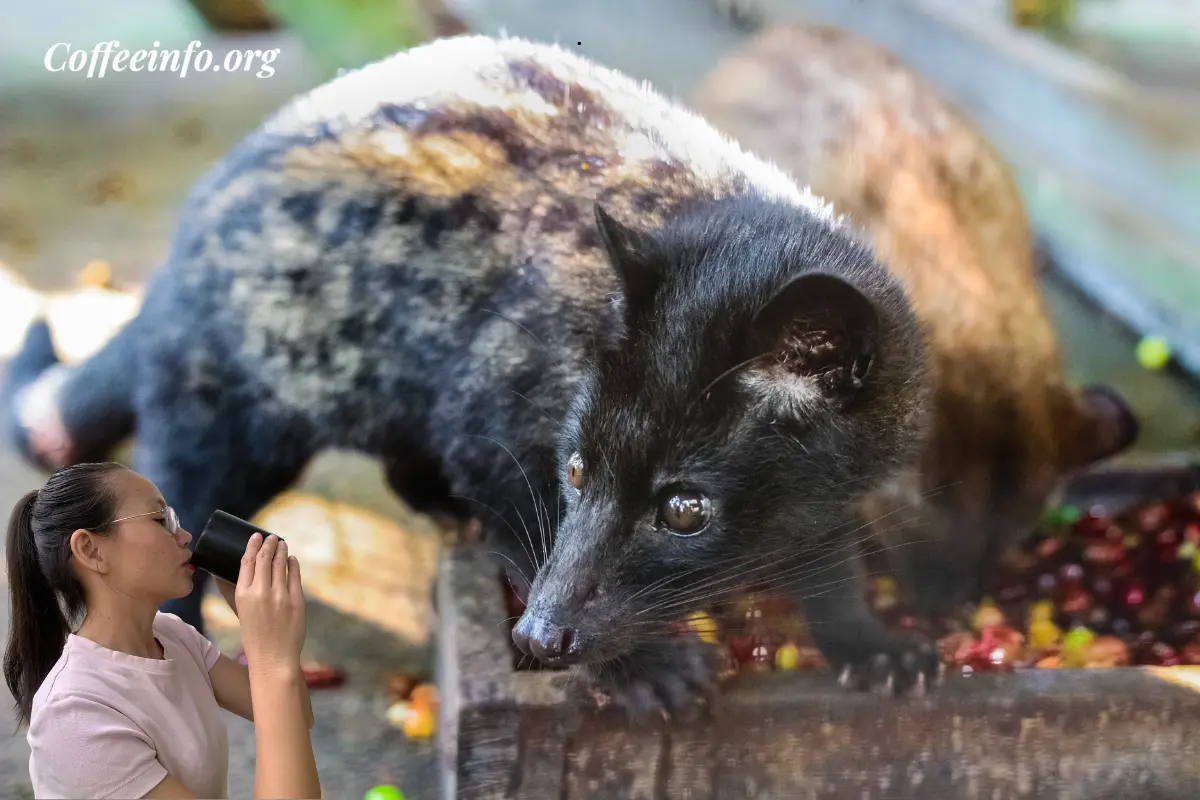Yes, coffee is bad for dogs. It contains caffeine, which is toxic to them and can cause serious health issues.
Table of Contents
Coffee has become an integral part of daily life for many individuals worldwide. Its popularity continues to grow, with diverse brewing methods and a plethora of coffee-related products available on the market.
As a rich source of caffeine, coffee offers numerous perceived benefits for humans, such as increased alertness and enhanced cognitive function. However, the caffeine content found in coffee can pose significant health risks when it comes to our furry companions. Understanding the implications of coffee consumption for dogs is essential for pet owners who wish to ensure the well-being of their animals.
The caffeine found in coffee, tea, and other products is toxic to dogs, as their bodies process this compound much differently than humans. While adults may enjoy a cup to boost productivity or enhance relaxation after a long day, the same cannot be said for our pets. Dogs are far more sensitive to caffeine, leading to a range of adverse effects that can be potentially life-threatening. Symptoms of caffeine ingestion in dogs can include restlessness, rapid heart rate, muscle tremors, and, in severe cases, seizures or even death.
Given the widespread consumption of coffee, it is crucial for dog owners to remain vigilant and informed about the dangers of caffeine exposure. Understanding what is safe for pets is a foundational aspect of responsible pet ownership. As the coffee debate unfolds, pet owners must remain aware of their dog’s health needs, keeping in mind that what is safe and enjoyable for humans does not necessarily translate to the same outcome for canines. In the following sections, we will explore the specific risks associated with coffee consumption in dogs and examine safer alternatives for pet owners seeking to treat their beloved companions.
What Is Caffeine and How Does It Affect Dogs?
Caffeine is a central nervous system stimulant that belongs to the methylxanthine class of compounds. It is found in various plants and is most commonly associated with coffee, tea, and chocolate. Chemically, caffeine is known as 1,3,7-trimethylxanthine, reflecting its structural formulation, which consists of a xanthine core with three methyl groups attached. While caffeine is widely consumed by humans for its stimulating effects, it poses significant health risks for dogs, given the stark differences in their physiological responses to this substance.
Dogs metabolize caffeine at a much slower rate compared to humans, making them considerably more sensitive to its effects. When a dog ingests caffeine, it can lead to symptoms such as restlessness, rapid heart rate, muscle tremors, and even seizures. These adverse reactions can occur with surprisingly low amounts of caffeine, which may only require a few chocolates, a small quantity of coffee, or certain teas. Moreover, the sensitivity to caffeine can vary among dog breeds and individual dogs, as some may exhibit stronger reactions than others.
The ingestion of caffeine can result in caffeine toxicity in dogs, which is a medical emergency. The lethal dose of caffeine varies but is estimated to be around 150 to 200 milligrams per kilogram of body weight. That means even a small quantity of a caffeinated beverage could have dire consequences for a dog weighing 10 kilograms. Understanding this stark contrast in caffeine tolerance between humans and dogs is crucial for pet owners to effectively safeguard their pets’ health. Consequently, it is important to prevent any exposure to caffeinated products and to be aware of the signs of caffeine toxicity, ensuring the well-being of our canine companions.
Symptoms of Caffeine Toxicity in Dogs
Caffeine toxicity in dogs can manifest through a range of symptoms, which can vary in severity depending on the amount consumed and the dog’s size and health. Pet owners should be vigilant and aware of these signs to ensure timely intervention if their dog ingests coffee or any caffeinated products.
Initially, the symptoms may be mild. A dog may exhibit restlessness and increased anxiety, frequently pacing or becoming unable to settle down. These behaviors often indicate that the dog’s nervous system is reacting to the caffeine. Additionally, they may experience increased heart rate and elevated blood pressure, which can be alarming signs requiring immediate veterinary attention.
As caffeine toxicity escalates, more pronounced symptoms can emerge. Vomiting is a common reaction, as the dog’s body attempts to rid itself of the caffeine. Diarrhea is another potential symptom, as caffeine can irritate the gastrointestinal tract. Increased urination may also occur, due to the diuretic properties of caffeine, further highlighting the substance’s adverse effects on a dog’s health.
Severe cases of caffeine toxicity can lead to muscle tremors, seizures, or even life-threatening conditions such as heart arrhythmias. Symptoms like these indicate a critical situation where urgent medical care is paramount. Other signs of serious caffeine poisoning may include excessive panting, difficulty breathing, and lethargy. It is crucial for pet owners to be aware that even small amounts of coffee or other caffeine-containing products can prove harmful to dogs, especially smaller breeds.
If you suspect your dog has consumed coffee or any caffeinated product, it is essential to monitor them closely for these symptoms and seek veterinary assistance promptly. Early intervention can make a significant difference in managing caffeine toxicity in dogs.
What Should You Do If Your Dog Consumes Coffee?
If your dog accidentally consumes coffee, it is essential to act swiftly and calmly. Coffee contains caffeine, which can be toxic to dogs and result in various health issues, including restlessness, rapid heart rate, tremors, and even seizures. The first step is to assess the amount of coffee your dog ingested and their size. A small sip may not cause serious harm, but larger quantities can be dangerous.
Observe your dog’s behavior closely for any signs of distress. If you notice any symptoms such as excessive panting, vomiting, or abnormal heart rhythms, it is crucial to contact your veterinarian immediately. They can provide specific advice based on your dog’s weight and the amount of coffee consumed. Be prepared to offer information about the type of coffee and any other substances your dog may have ingested.
In some cases, your veterinarian may suggest inducing vomiting to prevent further absorption of caffeine. However, this should only be done under veterinary guidance. Do not attempt home remedies without consulting a professional, as they may not be safe for your dog. If your dog appears to be stable and shows no immediate symptoms after consuming coffee, watch for changes in behavior and maintain contact with your vet for ongoing advice.
While waiting for veterinary assistance, ensure your dog has access to fresh water to help dilute the caffeine in their system. Remaining calm is vital, as dogs can pick up on their owner’s stress, which may exacerbate their anxiety. Understanding the risks associated with coffee consumption and being proactive can significantly improve your dog’s outcome if they accidentally ingest this caffeinated beverage.
Alternatives to Coffee for Dog Owners
For dog owners seeking to enjoy a warm beverage while ensuring their pets are safe, there are several dog-friendly alternatives to coffee that are both enjoyable and healthy. These options not only allow pet owners to indulge in their favorite drink but also promote shared moments with their furry companions without any risk associated with caffeine consumption.
One appealing alternative is herbal teas, such as chamomile or peppermint. These naturally caffeine-free options can provide a soothing experience for the pet owner while emitting pleasant aromas that dogs often find calming. Always ensure that any herbal tea is safe for dogs before brewing, as some herbs can be toxic. Owners can sip on these teas while allowing their pets to relax nearby, creating a peaceful environment for both.
Another excellent choice is warm bone broth, which is not only dog-friendly but also serves as a nutritious treat for pets. Homemade or store-bought bone broths provide valuable nutrients and are often irresistible to dogs. Pet owners can enjoy their cup of broth while sharing small amounts with their dogs, making it a delightful shared experience. Additionally, there are brands available that specifically cater to dogs, ensuring the ingredients are safe and beneficial for canine health.
Additionally, cold beverages like water infused with fruits, such as apples or blueberries, can serve as a refreshing drink for owners while providing dogs with a tasty snack. This method encourages hydration and can be particularly enjoyable during warmer months. Owners can also opt for smoothies made with dog-safe ingredients, sharing a small portion with their pets while they savor their own drink.
In these ways, dog owners can continue enjoying their beverage moments without compromising their furry friends’ health. By opting for safe and fun alternatives, both pet and owner can experience joyful moments together, ensuring that coffee and caffeine do not interfere with their bond.
The Importance of Educating Yourself on Pet Safety
Understanding pet safety is a crucial responsibility for all dog owners. As beloved family members, our dogs rely on us for their health and wellbeing, making it essential to educate ourselves about various aspects of pet care, including diet. Many foods and beverages that are safe for human consumption can pose significant health risks to dogs. One such item is coffee, which contains caffeine, a substance toxic to canines. Therefore, it is imperative to be informed and vigilant regarding what we allow our pets to access.
The first step in ensuring the safety of your pet is to recognize the dangers associated with certain food and drinks. Some human foods, such as chocolate, grapes, and onions, are well-known to be hazardous to dogs. However, coffee is among the lesser-discussed items that can be harmful. It is essential for dog owners to research the potential risks linked with these substances. Regularly consulting veterinary resources or pet care guides can help increase your awareness and understanding of which items are hazardous and which are safe for canine consumption.
Moreover, using reputable sources for information on pet safety enables dog owners to make informed decisions about their pets’ diets. Many veterinary clinics and animal behaviorists provide educational materials that outline what to avoid in a dog’s diet and how to recognize the signs of poisoning. Many pet safety organizations also offer extensive online resources that delve into the risks associated with various human foods and beverages. By investing time and effort into your education as a pet owner, you can greatly enhance your dog’s safety and quality of life, ensuring they remain healthy and happy.
Common Misconceptions About Dogs and Food
There is a plethora of misconceptions surrounding the dietary needs and tolerances of dogs. One of the most pervasive myths is that dogs can eat almost anything that humans consume. While it may seem harmless to share a piece of scrap food with a pet, this behavior can lead to serious health complications. Dogs have different physiological requirements compared to humans, and many human foods can be toxic to them.
Additionally, the idea that all human food is safe for dogs overlooks variations in tolerance levels. For instance, while some dogs may handle small amounts of certain foods without issue, others may react adversely even to commonplace items. It is vital to recognize that ingredients considered benign for humans, such as grapes or chocolate, can be extremely harmful or fatal to dogs. This underscores the importance of researching what foods are actually suitable for canine diets.
Another common myth is that dogs have a robust digestive system capable of handling rich or fatty foods. This is far from the truth; dogs can suffer from pancreatitis or other gastrointestinal issues if they consume food high in fat or sugar. Misunderstandings can also lead to the belief that dogs benefit from nutrient-rich leftovers, such as meat drippings or overly seasoned foods. In reality, many seasonings and additives, including garlic and onion, pose significant health risks to dogs.
Furthermore, many pet owners underestimate the significance of balanced nutrition for dogs. A dog’s diet should be tailored to its specific needs, considering factors like age, size, and health conditions. Misconception surrounding dogs and human food can result in poor diet choices, negating the essential nutrients dogs need for a healthy life.
Expert Opinions on Caffeine and Dogs
Caffeine is a central nervous system stimulant that can have serious implications for dogs. According to Dr. Jessica Vogelsang, a veterinarian and pet health advocate, “dogs metabolize caffeine much slower than humans, making even small amounts potentially dangerous.” This viewpoint emphasizes the need for dog owners to be vigilant about their pets’ exposure to caffeinated substances, including coffee. Symptoms of caffeine ingestion in dogs may include hyperactivity, restlessness, and even serious health issues like seizures and elevated heart rates.
Moreover, Dr. Sarah Wooten, an experienced veterinarian, points out that “the toxicity of caffeine varies depending on the size and weight of the dog.” A small dog can experience harmful effects from a much lower dose than a larger one. It is critical for pet owners to understand that the caffeine content in coffee—often overlooked—can quickly pose a risk to a dog’s health. In fact, just a few milligrams of caffeine per kilogram of body weight can be enough to trigger alarming symptoms.
Animal behaviorists also caution pet owners about the indirect consequences of caffeine consumption. Dr. Linda P. Case, an animal behaviorist, states, “the excitement and hyperactivity caused by caffeine can deteriorate a dog’s emotional stability, leading to behavioral issues.” Dogs that are exposed to caffeine may also develop a fear of confined spaces, as they associate the discomfort of anxiety with certain areas in the home. This nuanced understanding of the risks surrounding caffeine reinforces the notion that coffee should remain off-limits for dogs.
In essence, professional insights consistently advocate for caution regarding caffeine consumption in dogs. The potential health risks are significant, making it paramount for dog owners to prioritize their pets’ safety by avoiding caffeinated foods and drinks altogether.
Final Say: Keeping Your Dog Safe Around Caffeine
In conclusion, it is essential for dog owners to recognize the potential dangers associated with caffeine consumption, particularly from coffee. Caffeine, a stimulant found in coffee, poses significant health risks to dogs, even in small amounts. Symptoms of caffeine toxicity can range from restlessness and rapid heartbeat to more severe reactions such as muscle tremors and seizures. These dangers stem from dogs’ sensitivity to caffeine, as their bodies metabolize it much more slowly than humans do, making even insignificant amounts harmful.
Vigilance is crucial when it comes to ensuring the safety and well-being of our canine companions. Dog owners must be aware of where they store coffee and other caffeinated products as well as the potential for accidental ingestion. It is equally important to reinforce safe habits among family members and guests to prevent dogs from accessing coffee grounds, chocolate, or energy drinks that may contain caffeine. Regularly educating oneself about dog health is vital; knowing what foods and substances are toxic can help in making informed decisions about a pet’s care.
Fortunately, there are various safe, dog-friendly alternatives to coffee that can be offered to pets. Treats like herbal tea designed for dogs, or specially formulated products that resemble coffee but are caffeine-free, can provide pets with enjoyable experiences without the associated health risks. Choosing these alternatives ensures that dogs can share moments with their owners without jeopardizing their health. Overall, staying informed and attentive can make a significant difference in keeping our furry friends safe from the dangers of caffeine and ensuring they lead happy, healthy lives.








Leave a Reply